Fire or life threatening emergencies: 000
Emergency Information: 13 3337
SES Emergency Assistance: 132 500
The Emergency Services Levy (ESL) is an annual charge paid by all property owners in Western Australia.
Every dollar raised through the ESL pays for the delivery of critical and life-saving fire and emergency services across the State. In the event of a structure fire, bushfire, flood, storm, cyclone, hazardous spill, road crash or any other emergency on land or sea, our role at DFES is clear.
We are here to protect this State and its people; your property and assets; the places you live, work and play; and your community. The ESL helps us to deliver fire and emergency services for all Western Australians — at any time of the day and night and throughout the year.
The ESL pays for frontline services provided by Western Australia’s career and volunteer fire and emergency services including:
Firefighters ready to serve on the frontline in times of emergency
Emergency services volunteers and support personnel a dedicated network of volunteers ready to respond to hazards from structure fires and bushfires, helping people during floods, cyclones and storms, road crashes, hazardous spills and people lost on land and at sea
Fire and emergency vehicles powering our firefighters and volunteers on the frontline, with fire trucks, incident control vehicles, rescue and flood boats and road crash rescue trucks set to roll out at any time
Fire stations and emergency facilities operating bases for firefighters and volunteers, with vehicles and equipment ready to respond 24/7
Aerial fleet and rescue suppressing fires through a network of helitacs, fixed-wing bombers, aircranes and water bombers, and undertaking rescue missions
The ESL pays for Western Australia’s emergency response capability:
Triple Zero (000) Communications Centre operating 24/7 to take emergency 000 and 132 500 State Emergency Service calls from people in need
Emergency WA website dedicated to informing the community with warnings and emergency advice
Technology and communications infrastructure supporting frontline responders through radio networks and computer-aided dispatch programs
Emergency management planning undertaking regional hazard and incident risk profiling, analysis and prediction
Training developing firefighters and emergency services volunteers to be at the forefront of emergency response and capability
Safety and education preparing individuals and communities to reduce their risks and be resilient in the face of natural disasters and emergency events
The ESL pays for initiatives that minimise the community’s exposure to risks from all hazards:
Bushfire risk planning to minimise the impact of bushfire on individual, property, communities and the environment
Controlled burns reducing fuel loads and protecting the things that you value the most
Fire breaks stopping fire in its tracks and protecting vulnerable and at-risk communities
Fire investigations looking at the causes of fires and research into risks in the home and environment
Building inspections ensuring that buildings and residents are safe from hazards
More information about DFES’ funding and expenditure can be found in the DFES Annual Report.
If you are a property owner, the amount of ESL you are required to pay is published in your property’s local government rate notice.
The amount is marked “Emergency Services Levy” so you can distinguish the ESL amount from other local government charges.
When you pay your rate notice, your local government forwards the ESL amount to DFES.
DFES invests all of the ESL it receives into fire and emergency services. No matter where you live in Western Australia, you will see the direct result of your ESL being invested in the community.
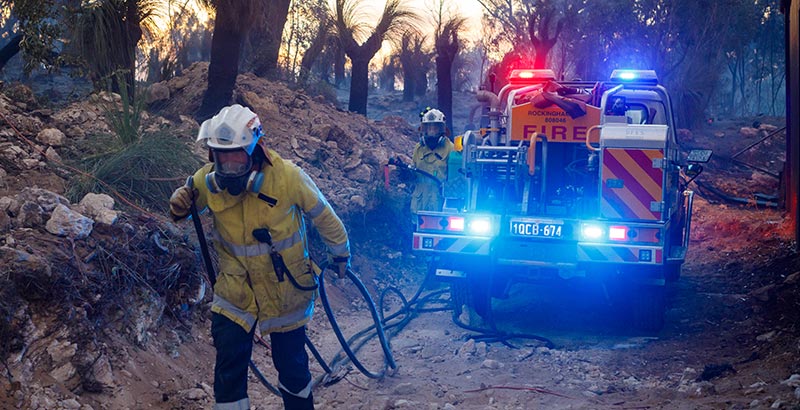
You pay the ESL when you pay the amount due on a rates notice issued by your local government. Payment can be made by any method accepted by your local government.
All instalment plans offered for payment of local government rates will include the ESL.
If a property owner fails to make payment on their local government rates notice by the due date, late payment interest will be charged. For the 2025-26 year, the maximum penalty interest rate that can be charged on unpaid ESL balances is 11%.
Eligible pensioners who choose to defer their local government rates will also have their ESL charge deferred.
ESL late payment interest does not apply where eligible pensioners choose to defer their local government rates.
If you are a pensioner, senior or concession card holder and receive a rebate on your local government rates, you will automatically receive the same rebate on your ESL. These rebates are generally combined and shown as one amount on your property’s rate notice.
To calculate the exact amount requires a property’s gross rental value (GRV) as at 1 July 2025. This will be printed on your 2025-26 council rates notice.
You may be able to use the GRV on your 2024-25 rates notice to get an indication of your ESL charge in 2025-26, but please be aware that:
GRVs are re-assessed every three to six years and are also updated when changes are made to a property. This could affect the valuation of your property from 1 July 2025; and
The calculated ESL charge may be an under-estimation if the property is a multi-unit residential building. This is because higher ESL charge thresholds apply for these properties depending on the number of units/tenancies.
The rate used to calculate the ESL on your property is determined by your property’s ESL category.
All land in WA is classified into one of five ESL categories based on the types of fire and emergency services available in the area as shown in the table below.
The ESL category and ESL rate that apply to your property are stated on your council rate notice.
ESL Category
Typical Location
Emergency Response
2025-26 ESL Rates
1
Perth Metropolitan Fire District
The Perth metropolitan network of Career Fire and Rescue Service stations and the State Emergency Service
$0.015216
2
Regional Cities
A Career Fire and Rescue Service station plus a Volunteer Fire and Rescue Service and the State Emergency Service
$0.011412
3
Perth Metropolitan Fringe
A Volunteer Fire and Rescue Service unit and/or Volunteer Bush Fire Brigade supported by the Perth metropolitan network of Career Fire and Rescue Service stations and the State Emergency Service
$0.007608
4
Country Towns
A volunteer service with structural firefighting capability and the State Emergency Service
$0.005325
5
Pastoral / Rural Areas
The State Emergency Service network and volunteer fire services in the vicinity
$108 fixed charge per rates notice
Each year, minimum and maximum ESL thresholds are set for each ESL category based on what a property is used for as shown in the table below.
The ESL property classifications are used for the levy only, and therefore may be different from other property or zoning classifications used for local governments rates.
Minimum
Maximum
ESL Category
All property uses
Single-Residential, Vacant Land and Non-Commercial Farming
Multi-Residential
(e.g. units/flats/apartments on a single assessment)
Commercial, Industrial and Miscellaneous
1
$108
$533
$533 x the number of dwellings
$305,000
2
$108
$400
$400 x the number of dwellings
$229,000
3
$108
$267
$267 x the number of dwellings
$153,000
4
$108
$187
$187 x the number of dwellings
$107,000
5
$108 per assessment
Mining Tenements
$108 per assessment
Municipality
Areas (click for maps)
Change (Deposited Plan/Version)
Explanation
Serpentine-Jarrahdale
Category 3 boundary extended into Category 1 area (Metropolitan Fire District Boundary, and consequential contraction of Metropolitan Boundary) DP 35830 V19
Extension of Career Fire & Rescue Service coverage due to urban expansion
Serpentine-Jarrahdale
Category 5 boundary extended into Category 3 area (Metropolitan Fire District Boundary, and consequential contraction of Metropolitan Boundary) DP 35831 V18
Extension of Career Fire & Rescue Service coverage due to urban expansion
Wanneroo
Category 3 boundary extended into Category 1 area (Metropolitan Fire District Boundary, and consequential contraction of Metropolitan Boundary) DP 35830 V19
Extension of Career Fire & Rescue Service coverage due to urban expansion
Wanneroo
Category 5 boundary extended into Category 4 area (Yanchep Fire District Boundary) DP 417106 V3
Extension of Volunteer Fire & Rescue Service coverage due to change in service delivery
Municipality
Areas (click for maps)
Change (Deposited Plan/Version)
Explanation
Albany
Category 5 boundary extended into Category 2 area (Albany Fire District Boundary)DP 35780 V4
Extension of Career Fire & Rescue Service coverage due to urban development
Bunbury
Category 5 boundary extended into Category 2 area (Bunbury Fire District Boundary)DP 35787 V4
Extension of Career Fire & Rescue Service coverage due to urban development
Capel
Category 5 boundary extended into Category 2 area (Capel Fire District Boundary) DP 35787 V4
Extension of Career Fire & Rescue Service coverage due to urban development
Geraldton
Category 5 boundary extended into Category 2 area (Greater Geraldton) DP 35807 V3 or DP 405560 V2
Extension of Career Fire & Rescue Service coverage due to urban development
Karratha
Category 5 boundary extended into Category 4 area (Karratha Fire District Boundary) DP 35815 V5
Extension of Volunteer Fire & Rescue Service coverage due to change in service delivery
Kwinana
Category 3 boundary extended into Category 1 area (Metropolitan Fire District Boundary, and consequential contraction of Metropolitan Boundary) DP 35830 V17
Extension of Career Fire & Rescue Service coverage due to urban development
Municipality
Areas (click for maps)
Change (Deposited Plan/Version)
Explanation
Wanneroo
Category 1 boundary extended into Category 3 area DP35830 (Metropolitan Fire District/Metropolitan ESL Category 1), and DP35831 (Metropolitan Fire District/Metropolitan ESL Category 3)
Extension of Career Fire & Rescue Service coverage due to urban expansion
Cockburn
Category 1 boundary extended into Category 3 area DP35830 (Metropolitan Fire District/Metropolitan ESL Category 1), and DP35831 (Metropolitan Fire District/Metropolitan ESL Category 3)
Extension of Career Fire & Rescue Service coverage due to urban expansion
Municipality
Areas (click for maps)
Change (Deposited Plan/Version)
Explanation
Busselton
Category 4 boundary extended into Category 5 area
(Busselton Fire District DP 35788 v5)
Extension of Volunteer Fire & Rescue Service coverage due to urban expansion
Busselton
Category 4 boundary extended into Category 5 area
(Dunsborough Fire District DP 35801 v2)
Extension of Volunteer Fire & Rescue Service coverage due to urban expansion
Augusta-Margaret River
Category 4 boundary extended into Category 5 area
(Witchcliffe Fire District DP 75867 v4)
Extension of Volunteer Fire & Rescue Service coverage due to urban expansion
Municipality
Areas (click for maps)
Change (Deposited Plan/Version)
Explanation
No changes to ESL Category boundaries in 2021-22.
Municipality
Areas (click for maps)
Change (Deposited Plan/Version)
Explanation
No changes to ESL Category boundaries in 2020-21.
Local governments collect the ESL from private property owners on behalf of DFES with the charge included on with rates notices.
The ESL collected is remitted to DFES and is used solely to pay for fire and emergency services throughout WA.
DFES pays local governments an annual administration fee in recognition of the services they provide in administering the ESL.
Local governments role and responsibilities in administering the ESL is set out in the Fire and Emergency Services Act 1998 and the accompanying regulations and guidelines, including the ESL Manual of Operating Procedures.

There are currently two models employed by local government to administer ESL collections, known as Option A and Option B. At present the vast majority of local governments (over 90%) administer ESL under Option B arrangements.
Local governments operating under Option A arrangements are required to remit ESL collected from levy payers to DFES in the month following its collection. The amount to be remitted is based on the ESL collected inclusive of any late payment interest, pensioner/senior ESL concession payments, and interest on deferred ESL as paid by the Office of State Revenue.
Option A local governments are required to submit to DFES:
Local governments operating under Option B arrangements make ESL payments to DFES on either a quarterly or annual basis as shown below:
Quarterly Payment Option
30% of ESL billed to levy payers by 21 September
30% of ESL billed to levy payers by 21 December
30% of ESL billed to levy payers by 21 March
10% of ESL billed to levy payers by 21 June
Annual Payment Option
100% of ESL billed to levy payers by 21 September
These payments are based on the ESL billed to levy payers in a given financial year, and excludes ESL penalty interest, pensioner/senior ESL concession payments, and interest on deferred ESL as paid by the Office of State Revenue (OSR).
Option B local governments are required to submit to DFES:
The table below summarises the two administrative options:
Option A
Option B
ESL payments to DFES
Monthly, based on the ESL collected in the previous month.
Quarterly or annually based on ESL billed for the levy year.
ESL penalty interest collected by local government
Remitted to DFES monthly.
Retained by local government.
Cashflow implications
Stable cashflow as ESL collected by local government is remitted the following month.
Likely to experience surplus cashflow in the first half of the financial year as, for most, the ESL collected from levy payers will exceed the required payment to DFES.
Delinquent ESL and ESL write-offs
Local government required to pursue delinquent ESL in the same manner as general rates. Costs associated with legal action are to be recovered against the debtor. Where these costs are unable to be recovered, they are to be shared between local government and DFES on an ad valorem basis. Local government can request a write-off of irrecoverable ESL debt by submitting a Form D to DFES. If approved, DFES will assume liability for the write-off. ESL Interest amounts less than $2.00 per annum per assessment can be written-off at the discretion of local government.
Local government required to pursue delinquent ESL in the same manner as general rates and assumes liability for all unpaid and deferred ESL, ESL write-offs and all costs associated with ESL debt recovery. Must seek approval before writing off outstanding ESL amounts (with the exception of ESL Interest amounts less than $2.00 per annum per assessment).
Returns required to be submitted to DFES
City of Albany
City of Armadale
Shire of Ashburton
Shire of Augusta-Margaret River
Town of Bassendean
City of Bayswater
Shire of Beverley
Shire of Boddington
Shire of Boyup Brook
Shire of Bridgetown-Greenbushes
Shire of Brookton
Shire of Broome
Shire of Broomehill-Tambellup
Shire of Bruce Rock
City of Bunbury
Shire of Busselton
City of Canning
Town of Cambridge
Shire of Capel
Shire of Carnamah
Shire of Carnarvon
Shire of Chapman Valley
Shire of Chittering
Town of Claremont
City of Cockburn
Shire of Collie
Shire of Coolgardie
Shire of Coorow
Shire of Corrigin
Town of Cottesloe
Shire of Cranbrook
Shire of Cuballing
Shire of Cue
Shire of Cunderdin
Shire of Dalwallinu
Shire of Dandaragan
Shire of Dardanup
Shire of Denmark
Shire of Derby-West Kimberley
Shire of Donnybrook-Balingup
Shire of Dowerin
Shire of Dumbleyung
Town of East Fremantle
Shire of East Pilbara
Shire of Esperance
Shire of Exmouth
City of Fremantle
Shire of Gingin
City of Greater Geraldton
Shire of Gnowangerup
Shire of Goomalling
City of Gosnells
Shire of Harvey
Shire of Halls Creek
Shire of Irwin
Shire of Jerramungup
City of Joondalup
Shire of Kalamunda
City of Kalgoorlie-Boulder
City of Karratha
Shire of Katanning
Shire of Kellerberrin
Shire of Kent
Shire of Kojonup
Shire of Kondinin
Shire of Kulin
City of Kwinana
Shire of Lake Grace
Shire of Laverton
Shire of Leonora
Shire of Manjimup
Shire of Meekatharra
Shire of Menzies
Shire of Merredin
Shire of Mingenew
Shire of Moora
Shire of Morawa
Town of Mosman Park
Shire of Mount Magnet
Shire of Mount Marshall
Shire of Mukinbudin
Shire of Mundaring
Shire of Murchison
Shire of Murray
Shire of Nannup
Shire of Narembeen
Shire of Narrogin
City of Nedlands
Shire of Northam
Shire of Northampton
Shire of Nungarin
Shire of Peppermint Grove
Shire of Perenjori
City of Perth
Shire of Pingelly
Shire of Plantagenet
Town of Port Hedland
Shire of Quairading
Shire of Ravensthorpe
City of Rockingham
Shire of Sandstone
Shire of Serpentine-Jarrahdale
Shire of Shark Bay
City of South Perth
City of Stirling
City of Subiaco
City of Swan
Shire of Tammin
Shire of Three Springs
Shire of Toodyay
Shire of Trayning
Shire of Upper Gascoyne
Town of Victoria Park
Shire of Victoria Plains
Town of Vincent
Shire of Wagin
Shire of Wandering
City of Wanneroo
Shire of Waroona
Shire of West Arthur
Shire of Westonia
Shire of Wickepin
Shire of Williams
Shire of Wiluna
Shire of Wongan-Ballidu
Shire of Woodanilling
Shire of Wyalkatchem
Shire of Wyndham-East Kimberley
Shire of Yalgoo
Shire of Yilgarn
Shire of York
City of Belmont
Shire of Dundas
Shire of Koorda
City of Mandurah
City of Melville
Shire of Ngaanyatjarraku
Funding for bush fire brigades and State Emergency Service (SES) units is allocated via the Local Government Grant Scheme (LGGS) process where local governments apply for an operating grant and a capital grant for each service.
Capital grants include acquiring new firefighting appliances, vehicles and buildings.
Operating grants fund essential costs such as running vehicles and buildings, protective equipment, volunteer insurance and operational consumables.
Operating grants are paid to local governments annually in July, October, January and April in equal quarterly instalments.
Local governments determine how to allocate and spend their operating grant in consultation with their brigades and/or SES units.
DFES has no direct role in such decisions, other than to provide specialist advice and support.
For further information on the local government operating and capital grants system, please refer to the official manual and Frequently Asked Questions.
To assist local governments applying for capital grant funding, facility "footprint" designs are available below.
DFES has developed a suite of 13 standard designs commonly called ‘footprints’, for operational emergency service facilities. They provide varied accommodation options for volunteer emergency services and provide flexibility to meet the needs of the different combinations of DFES supported services.
The footprints will assist in Local Government Grant Scheme (LGGS) applications and capital works processes by providing a choice from designs that are fit for purpose.
The ‘facility footprint’ concept is a significant initiative in providing purpose built facilities for emergency services in Western Australia.
Should you wish to discuss any information contained in this document, please contact Manager Asset Services on (08) 9395 9857.
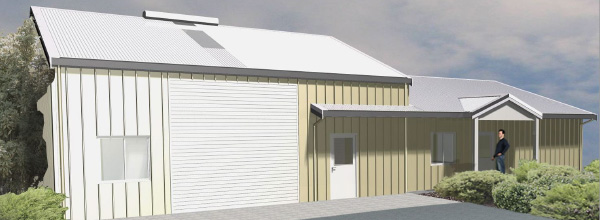
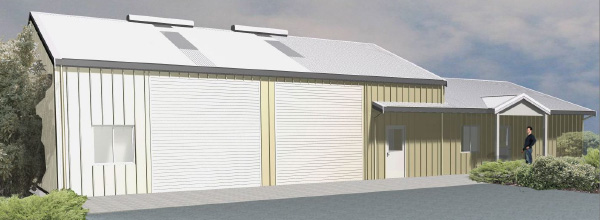
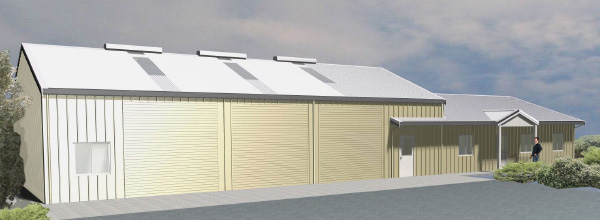
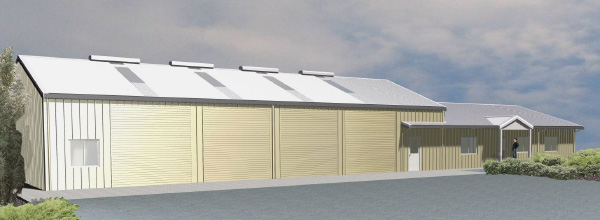
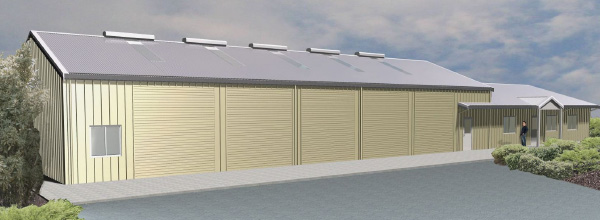
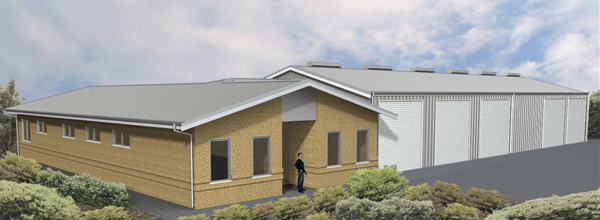
Previous LGGS grant allocations to local governments
A list of grant allocations to local governments for previous years is available below.
The LGGS was a funding system change only. Local governments continue to run and manage bush fire brigades and, where applicable, SES units.
The LGGS has not changed the infrastructure or operational arrangements that apply to bush fire brigades as set out in the Bush Fires Act 1954.
Under the provisions of the Act, responsibility for fire prevention and fire suppression rests with local governments.
If you have a question about the Emergency Services Levy call the ESL Information Line on 1300 136 099 or submit an online enquiry form.